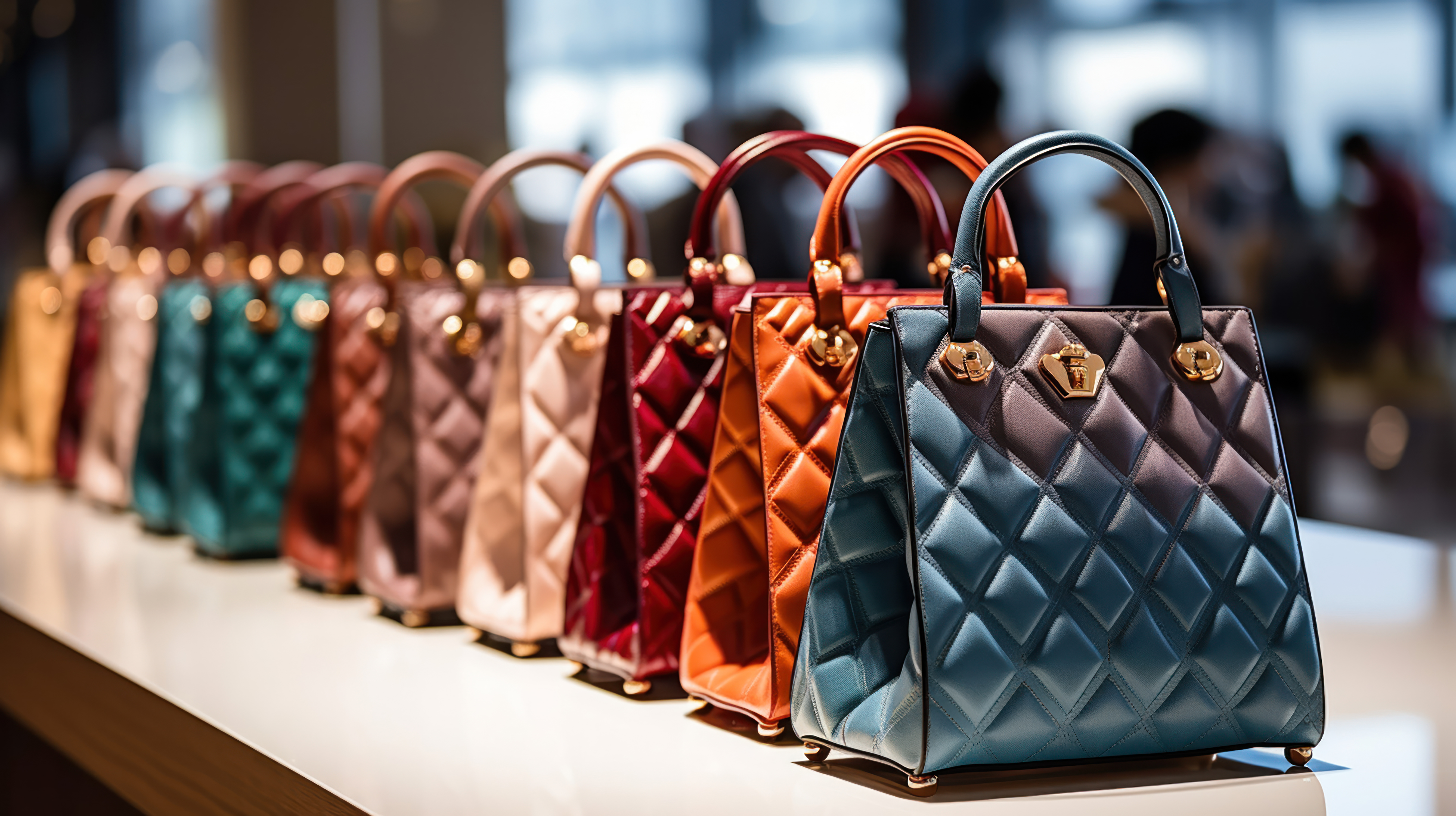The myth of a handbag as a sound financial investment is starting to crack, and many buyers will find that the treasures they own may not hold the value they think.
The Luxury of Illusion: Why Your 'Investment' Bag Won't Pay Off
Luxury handbags have long been trumpeted as the ultimate status, sophistication, and success symbol. Then there is, of course, the myth of the "investment" bag.
For some people, a high-end purchase is not only a fashion statement but also a smart financial move-an illusion carved and honed by marketing campaigns, influencers, and fashion houses for years.
But is this reality? The myth of a handbag as a sound financial investment is starting to crack, and many buyers will find that the treasures they own may not hold the value they think.
Let's pop the myth of the investment bag and find out why your favorite luxury handbag just might not be the golden ticket to financial gain after all.
The Myth of the 'Investment' Bag: A Brief History of Designer Handbags
The Seductive Promise of 'Investment' Bags: Why Does Anybody Buy into That?
Designers have managed to position designer handbags as a symbol of luxury and financial astuteness, touting that buying a designer handbag is not only about stylishness but also savvy economics.
All that has created an illusion that the luxury bags retain their value or even appreciate.
Marketing genius or consumer delusion? How Designer Brands Framed Handbags as Assets
Fashion houses like Hermès, Louis Vuitton, and Chanel have thrown their weight and prestige behind the marketing message: a product one 'needs' to have, if rich and fashion-forward.
The artificial scarcity, created by using limited releases and waiting lists, whips up craving, and therefore retaining their worth.
The Myth of the 'Investment' Bag: Who Really Spun This Yarn About Iconic Fashion Houses?
The idea of an "investment" bag probably originated from the Hermès Birkin and the Chanel 2.55-two bags that, as it happens, have defied the common depreciation curve.
A few high-end designer bags do go up in value, but that doesn't make it true for the bunch. It's selective success like this which creates an optical illusion: one where buying luxury is some sort of securing prospective financial gains.
2. Depreciation in Fashion: Why Your Handbag Loses Value Over Time
Some Economics of Fashion: How and Why the Mechanics of Depreciation Work the Way it Does in the Luxury Goods Market
Most designer handbags retain perceived rarity and value, but like any consumer good, they are all subject to forces of depreciation.
The minute a bag is bought, it usually loses some of its value when leaving the store. Much like automobiles, a luxury bag may lose as much as 50% of its retail price within a single year, depending on brand and condition.
How Trends Take a Toll on Resale: Why Your Bag is Less Coveted Next Season
Fashion is fickle. That ultra-hot bag today may be so yesterday by tomorrow. And yes, that does include very expensive handbags. This means that by the time you're ready to sell your bag, its desirability may have greatly diminished, along with its value.
Wear and Tear: The Silent Killer - How Everyday Use Whittles Away Value
Even the most expensive materials scuff, scrape, or stain over time. In fact, wear is the true villain that takes that much away from the resale value of your handbag.
The majority of buyers within the resale market are in search of items in near-perfect condition, and even slight wear can take hundreds-or thousands-of dollars off the value of a bag.
The Resale Trap: Why Secondhand Luxury Doesn't Guarantee a Return
The Rise of Resale Platforms: Analyzing the Thriving Second Hand Luxury Market
Sites like The RealReal, Vestiaire Collective, and eBay have made resale so healthy for designer goods that these resale sites have made it easier than ever before to sell off any used bag. Indeed, no lucrative reward is guaranteed.
The Liquidity Problem: How Hard Can it be to Resell a Used Luxury Bag?
Yes, of course, luxurious bags are quite expensive, but that does not mean they fly off the shelves. Unlike traditional assets, which for the most part can be liquidated without much hassle, a handbag needs to find a very specific buyer willing to pay your asking price.
Also, resale sites have bags that can be in resale for several months or even years without knowing if you will ever get the money returned to you.
What Really sells: The Few Exceptions
Very few designer bags appreciate in value: the limited editions or highly sought-after models, such as the Hermès Birki. Except perhaps for the most elite and/or rarest of pieces, slim will be the chances that you can resell it for a higher price than the purchase.
4. The Emotion of Luxury: People Overestimate the Worth of their Bags Because
How Psychology Works in Creating Attachment between a Buyer and Their Purchase of a Luxury Item
Most people relate their luxury bags with milestones, social status, or personal achievement and thus the sentimental value is very hard to detach from the financial value.
The Social Status Factor: Owning a Luxury Bag Gives a Feeling of Belonging
To many people, a very expensive handbag is more than something with which to complement one's attire; it's a sign of success.
Owning a designer bag gives one this sense of achievement and recognition by society perhaps that makes the thought of selling it-and most likely finding out that it wasn't as valuable as one had perceived-bitter.
The Endowment Effect: Why We Think an Item they Own is Worth More Than it Really Is
This cognitive bias has come to be called the endowment effect, whereby people attach more value to things simply because they happen to possess them.
That little quirk of psychology may then make the owner of that Louis Vuitton bag believe it's worth more than what actually would be claimed on the market.
Expert Opinion on Why Handbags are Bad Investments.
Most financial experts would say that a luxury handbag has no place whatsoever in any serious portfolio. Bags are hugely volatile, susceptible to the whims of fashion that generally fall in value over time-all ingredients combined that render them a very unreliable long-term asset.
Opportunity Cost: What One Could Be Doing With Money Instead Of Using It On A Purse.
The money invested in a luxury handbag would be well-invested and put to better use in investments that stand the test of time, such as in a diversified stock portfolio, putting a down payment on a house, or even a venture.
Clearly, each of those alternatives carries a far greater upside from a purely financial standpoint than a designer bag does.
6. The Power of Perception: How Brands Create Illusions of Long-Term Value
Scarcity Factor and Brand Exclusivity: How to Manipulate Supply for the Maintenance of an Illusion of Value
Luxury brands withhold supply of some bags to create a perception of scarcity, hence raising demand for that particular product.
Actually, by manufacturing fewer units, they create scarcity and hence charge exorbitant prices for their products. They convince people that the bags are hard to get and really valuable.
Celebrity Sell: How Influencers and A-Listers are Used to Sell Bags as 'Investments'
Celebrity culture really comes into play in high-end handbag marketing. If some movie star or somebody on Instagram has been seen carrying a particular bag, that automatically creates a certain type of yearning and prestige.
Just because your celebrity idol carries some accessory purse worth 10,000 dollars doesn't make it a good financial decision.
Luxury Marketing Strategies: The Psychology Behind the Price and Prestige
If anything, luxury brands have made exclusiveness and sophistication a dream to sell. The more one pays, the more desirable it gets, and it only reaffirms the very idea that owning one of those bags is a passport into a world leading toward a more cultured and successful life.
The Sustainability Question: TheEnvironmental Cost of Luxury
Fast Fashion vs. Luxury: Why Even High-End Brands Are Capable of Contributing to Unsustainable Consumption
While a luxury brand argues that it stands as an alternative to fast fashion in the name of sustainability, the brand cannot escape the consequences brought about by overconsumption.
Most high-end bags are made from animal products or harmful materials that are environmentally destructive.In addition, their processes are very resource intensive.
Leather and Luxury: The Dark Side of High-End Manufacturing
Leather manufacturing, to one degree or another, has been blamed for the most damaging practice to the environment through tree loss, water usage, and noxious chemicals for tanning. And more often than not, the prestige takes precedence over the sustainability issue of the products.
Sustainable Luxury on the Rise: Is An Eco-Friendly Alternative Available or Is It Just Greenwash?
Meanwhile, the sustainability luxury is on the rise, taking over everything from recycled or plant-based material bags. But for every such effort, a number of people claim it is more about greenwashing than making any difference whatsoever.
Exception to the Depreciation Rule: When a Bag Just Might Actually Appreciate in Value
Rare Cases: Examining the Iconic Hermès Birkin and Chanel 2.55
Most designer handbags depreciate, but a few may defy this rule. Iconic models-such as the Birkin from Hermès or the 2.55 by Chanel-appreciate because of their status, their rarity, and their timeless design.
Appreciation Facts: Limited Edition, Celebrity Ownership, Brand Legacy
Some bags made by, or endorsed from, historically relevant designers, celebrities, or that have extremely limited quantities can appreciate. These, however, are notoriously hard to predict, and even the ones that do possess those qualities are not guaranteed to appreciate.
How To Find A Potential Winner: What To Look For In An Investment Bag
In such a case, if you want to invest by buying a bag, seek the limited edition releases or those that have some history associated with their release as a collector's item. Note herein that such an exception is extremely rare.
Luxury Consumerism vs. Personal Finance: Rethinking Your Priorities
Status or Value? Check Your Motive for Buying that Luxury Item
The next time you make that next luxury purchase, just take a second and ask yourself, 'Why am I buying the bag?' Because you really believe in the investment potential or because you want to have that status-that emotional feel?
Financial Health Check: How To Balance Personal Finance Goals With The Odd Splurge
While desiring goods that make life exciting is not wrong, one weighs this off against financial long-term goals. Pay for investments which actually reap you real returns and serve you with stability and security towards your financial duties.
Conclusion
The reality of owning an "investment" bag is rather less glamorous than the thought of owning such a bag. For the most part, this myth about designer handbags being sound investments is just one marketing illusion, and one would do better to treat such purchases as indulgences rather than as assets.
Ditch the thought of your luxury handbag paying off and focus on making wiser, more sustainable investment decisions. Instead of a bag that can get lost or stolen, invest your money in experiences or traveling-or anything that contributes to your personal growth.
Money spent on experiences rather than stuff results in longer happiness.


























